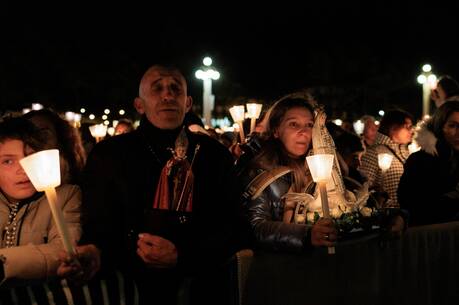A Reflection for the Solemnity of the Immaculate Conception
Readings: Genesis 3:9-15, 20 Ephesians 1:3-6, 11-12 Luke 1:26-38
A do-over. Who has not wanted one, at times with no little desperation? We often allow little kids to try again. Hard to keep their spirits growing without a do-over. But becoming an adult means that the do-over days are largely past.
Sometimes the fault was ours. We should have been honest, and now we suffer the consequences. At other times, life was out of alignment through no lapse of our own. We cannot stop thinking that if we had started to work a few moments earlier or taken our normal road, the accident would never have occurred. Oh, for a do-over!
Of course, the good news, which Christians preach, is that God did let us do it over again—and when it counted most! Somehow, we had alienated ourselves, collectively and individually, from the very source and summit of our lives. That is the meaning of the garden, of Adam and Eve’s fall.
A do-over. Who has not wanted one, at times with no little desperation?
The Gospel says that a new Adam, someone fully human, one of us, came to undo the fall of the first. But how does one give back humanity’s horizon without being that horizon? Only God could end the alienation we launched, by coming among us as God and man.
Grace is an essential but challenging Christian word. We use it to note that we have truly encountered God without reducing God to being a part of our world. It might be better to say we have been graced when God encounters us and yet remains the mysterious horizon of our lives.
We rightly want to attribute everything to the horizon, to its gracious decision to seek us out. We would not exist but for the gracious act of God. And we do nothing good without God graciously giving us the ability to do so.
As God-made-flesh, Christ, our creator, is the divine offering the world its great do-over.
But if you push too far on grace, you eliminate our own humanity. We do not want to say that human freedom and human responsibility are delusions. If we are not true partners with God, then God exists but we ourselves are nothing more than illusion, a dream from which God awakes.
As God-made-flesh, Christ, our creator, is the divine offering the world its great do-over. And, as the creature who said,
Behold, I am the handmaid of the Lord.
May it be done to me according to your word (Lk 1:38).
Mary is God’s do-over, reaching into the very depths of our humanity, our creaturehood. One of us, a creature who is nothing more than a creature, is kept free from sin from the first moment of her existence.
Here as well, all the rules of the game we call grace remain in play. This is God’s gift, the work of Christ his champion. We say that she received “prevenient” grace, a gift that runs before us. But remember, we insist that whenever humans do good, God’s gracious gift runs before them. The mystery of Mary’s immaculate conception is of a piece with the conundrum we call grace. Where does God end? Where do we begin? But granting that Mary cooperated with God’s gift, why does Christ, her son and her redeemer, preserve Mary from sin from the first moment of her existence? Why run that far ahead?
God is the great artist, who finds form and balance where none else can. God’s poetry demands that the do-over that Christ offers runs from creator-become-man all the way down into creature, raised to the divine, the flawless, the immaculate.
Do-overs. We have no right to expect them of God. And even less, to limit how thoroughly God determines to do them.








